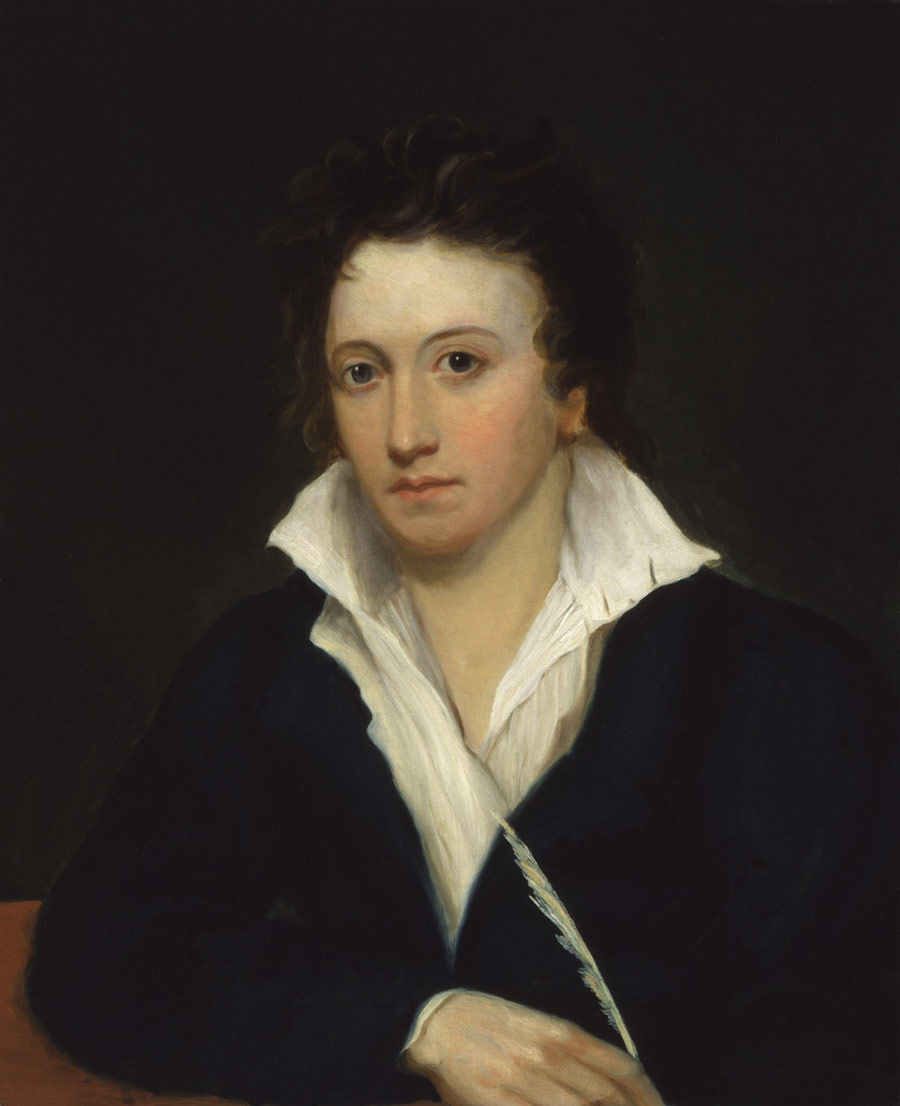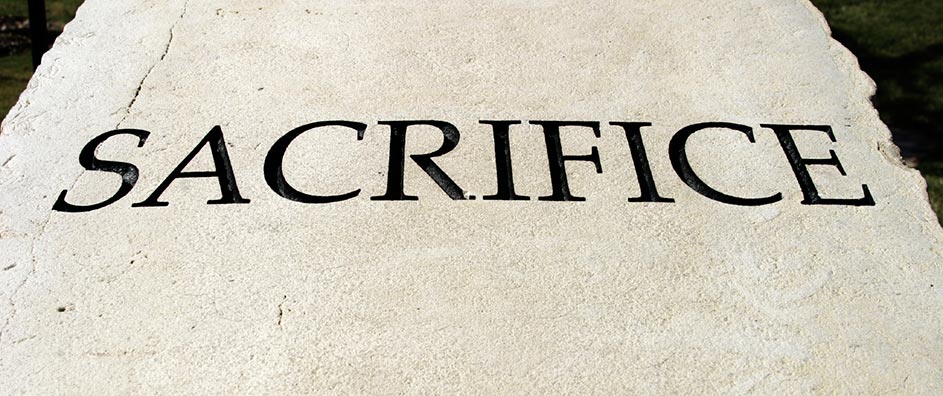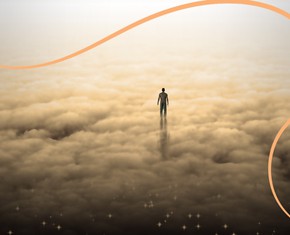The views expressed in our content reflect individual perspectives and do not represent the authoritative views of the Baha'i Faith.
Percy Bysshe Shelley’s “Ozymandias,” a poem about a crumbling monument to Ramses the Great, describes “Two vast and trunkless legs of stone” standing atop a pedestal on which is inscribed the following epitaph:
My name is Ozymandias, king of kings:
Look on my works, ye Mighty, and despair!”
Nothing beside remains: round the decay
Of that colossal wreck, boundless and bare,
The lone and level sands stretch far away.

Percy Bysshe Shelley
Whether they were prince or pauper, all are dead and gone. But not only are they gone; so are the armies they assembled, the empires they built, and all but the remnants of the monuments they had constructed as everlasting tributes to themselves. Their one chance at a sort of immortality comprehensible to their materialist minds—something that everlastingly could be seen, touched, or admired—even that has decayed, crumbled to dust, and vanished.
Perhaps the vanity of attaining heroic immortality can be appreciated by posing to ourselves a simple but reasonable query: how many among us would at this very moment trade our life for the life of any single one of these heroes and all the fame, power, and riches they acquired if we had to accept simultaneously one obvious fact about reality, the fact that, like them, by accepting this Faustian pact, we, like them, would suddenly be dead. What is more, we would likewise have to accept that, like them, we would be presently experiencing whatever afterlife was due them. Knowing as we do absolutely nothing about the integrity of their souls, we might be risking more than is wise.
So before we proceed to the next part of our study of death according to the successive stages in our life, I think it well worthwhile to examine in a little more depth two distinct mindsets that typify entirely different sorts of heroes and heroines, each of which embodies or implies two entirely distinct attitudes about this rite of passage from childhood into the real world.
In light of the axioms, ironies, and absurdities associated with heroism as we have thus far discussed it, especially the common fate of all heroes and heroic endeavors, we might well ponder a bit exactly what motivates one to cast aside all care and apparent self-interest to make the ultimate sacrifice. This theme is especially curious when we study those who do not have some certitude about any sort of continuity of self after death, nor any explicit expectations of an afterlife that will reward them for their sacrifice.
One kind of heroism demonstrates that the Aristotelian Golden Mean is still gold: true courage is the balance between cowardice and foolhardiness. From this point of view, courage is always a considered course of action, not a reflex. And yet the heroic choice often requires instantaneous or reflexive responses. This dilemma brings us to yet another question regarding heroism in relation to death—is true heroism or courage being fearless, or deciding to act in spite of being afraid?
Baha’u’llah says that “whatever decreaseth fear increaseth courage.” – Epistle to the Son of the Wolf, p. 32. Implicit in that passage is that various forms of knowledge decrease fear—particularly, we might infer, knowledge of the continuity of our lives in the spiritual realm beyond this life. Consequently, we could very well decide to endanger our lives for a worthy cause, knowing that our objective in this life is to prepare ourselves for further development in the next world.
This worthy question can help us probe our mental images of heroes and heroism. Are those heroic figures in legend and popular culture individuals who act against self-interest because they have a vision of something more encompassing and more important than their individual existence? Or are these heroic figures simply uncaring, antisocial, risk-taking misfits with nothing to lose?
While we cannot go back in history to interview these figures about the motives for their sacrificial actions, we can make logically-based inferences about most. Achilles may have wanted fame, but Joan of Arc had a mission that went beyond whatever personal attention and acclaim she received or anticipated that she might receive after being burned at the stake. Certainly we presume the same sense of purpose motivates many who die in battle to protect the rights of others.
But there is also a mindset that can be acquired or induced which works most on the personal level that is more along the lines of foolhardiness, a sort of addiction to the adrenaline rush that comes with pitting our will against the will of another.
I think, when we contemplate these two very different forms of bravery, that true heroism means coming to terms with the fear of death. Or stated somewhat more philosophically, once a person is willing to accept the worst possible outcome of any given situation, then he or she has the potential to overcome all fear. It is precisely in this sense that courage and heroism—when it is something other than fanaticism fueled by ignorance and cheering companions or a mob mentality—is not the absence of fear, but the willful suppression of fear with a larger dose of resolve and acquiescence to eternity:
The conception of annihilation is a factor in human degradation, a cause of human debasement and lowliness, a source of human fear and abjection. It has been conducive to the dispersion and weakening of human thought whereas the realization of existence and continuity has upraised man to sublimity of ideals, established the foundations of human progress and stimulated the development of heavenly virtues; therefore it behooves man to abandon thoughts of non-existence and death which are absolutely imaginary and see himself ever living, everlasting in the divine purpose of his creation. He must turn away from ideas which degrade the human soul, so that day by day and hour by hour he may advance upward and higher to spiritual perception of the continuity of the human reality. – Abdu’l-Baha, The Promulgation of Universal Peace, pp. 89-90.
I suppose the point I am getting at is that heroism, when considered in the light of reason rather than in the darkness of passion and machismo, is not becoming impervious to fear. Heroism in truth implies acting in spite of fear precisely because there is a cause, a set of values, an integrating principle that we consider more abiding and more real and important than we are individually. For even as Socrates notes that the unexamined life is not worth living, we might say that mindless heroism is not worth having.
The concept of heroism as the willingness to risk one’s life to advance the well-being of another or for the attainment of a lofty objective is perhaps the definition most profoundly and commonly paraded before us on a daily basis by every parent dedicated to advancing human progress. Without such ongoing personal sacrifice or willingness to devote ourselves to something greater than ourselves, we are mostly lost, and the progress of the human body politic as a whole will cease.
This choice—the choice to devote ourselves to the advancement of civilization—while not as public or as heralded as Achilles’ choice, is certainly more heroic over time, requiring as it does not a single grandiose gesture, one blinding flash of bravado, but a daily reassertion of the noblest of routines that poet Robert Hayden aptly characterized as “love’s austere and lonely offices,” where there is no obvious resolution to problems, no single decision that suffices, but a daily rededication to unconditional love expressed in almost imperceptible increments of self-sacrifice.
















Comments
Sign in or create an account
Continue with Googleor